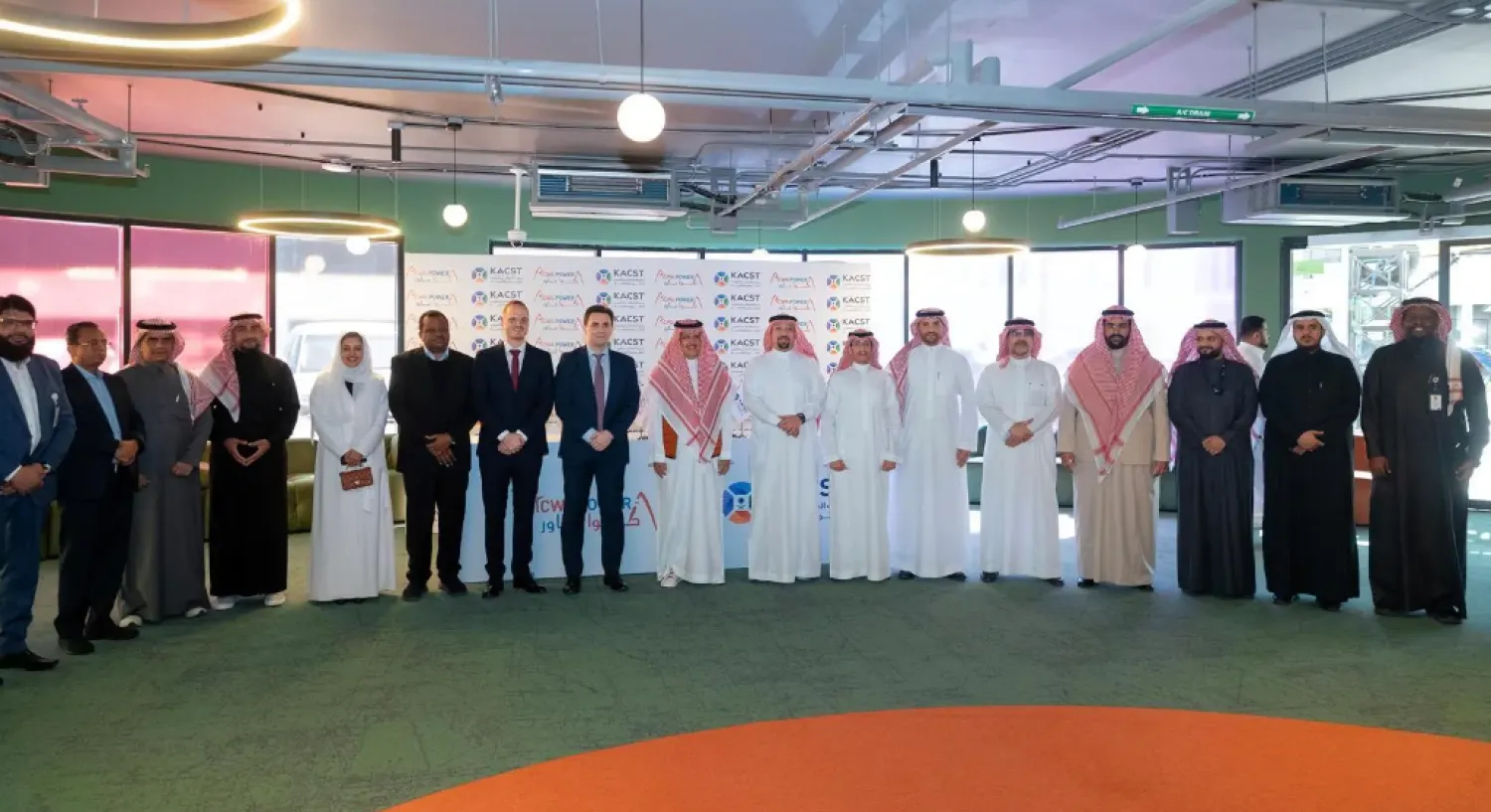King Abdulaziz City for Science and Technology (KACST) and ACWA Power Company signed an agreement on Sunday to establish a joint "Clean Energy and Water Desalination Technologies Development Center", according to a press release from KACST.
KACST Vice President for the Energy and Industry Sector Dr. Saeed Al-Shehri and Executive Vice President of Innovation and New Technology Sector at ACWA Power Thomas Altmann signed the agreement in a ceremony attended by KACST President Dr. Munir bin Mahmoud Al-Desouki, ACWA Power Founder and Chairman of the Board of Directors Mohammad Abunayyan, and Senior Vice President for the Research and Development Sector of KACST Dr. Talal Al-Sudairi.
According to the press report, the center will conduct studies and scientific research, and work to attain technical development in vital areas in the clean energy and water sector, including developing solar energy technologies, energy storage technologies to support future energy networks, and innovative technologies and materials for desalination membranes, to reduce costs and emissions of desalination processes.
The center will employ artificial intelligence and advanced digital technologies to help the process of research and achieve goals, SPA reported.
The joint center also aims to increase the contribution of ACWA Power in the complex of national laboratories and innovation oases, to spread the culture of cooperation and innovation in the academic community and the business sector, and to transfer innovative water desalination technology to various areas of the industrial sector.
KACST, ACWA Power Sign Deal to Establish Clean Energy, Water Desalination Technologies Development Center

The center will employ artificial intelligence and advanced digital technologies - SPA

KACST, ACWA Power Sign Deal to Establish Clean Energy, Water Desalination Technologies Development Center

The center will employ artificial intelligence and advanced digital technologies - SPA
لم تشترك بعد
انشئ حساباً خاصاً بك لتحصل على أخبار مخصصة لك ولتتمتع بخاصية حفظ المقالات وتتلقى نشراتنا البريدية المتنوعة







